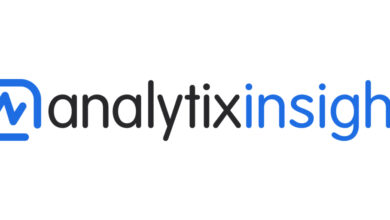myFICO: How Could the Fed Raising Interest Rates Affect You?

SAN JOSE, Calif.–(BUSINESS WIRE)–The Federal Reserve is expected to increase its federal funds rate several times in the coming year. Consumers don’t pay the federal funds rate directly—it’s how much financial institutions pay for overnight loans. But raising this rate can have a rippling effect throughout the economy. Here’s a closer look at what might happen and how you could prepare or react, from myFICO.
For more loan and credit education, visit myFICO’s blog at https://www.myfico.com/credit-education/blog.
Debts Could Become More Expensive
When you’re paying off a fixed-rate loan, such as a personal, auto or mortgage loan, your interest rate won’t change after you take out the loan. However, the rate on variable-rate loans could rise with the increasing Fed funds rate.
If you have credit card debt or a variable-rate installment loan, you might see your interest rate and minimum monthly payments rise. Paying off your credit cards as quickly as possible could help you save on interest and may improve your FICO® Score.
You could also look into transferring the debt to a new credit card with a 0% APR intro offer, and paying it down while you’re not accruing interest. But consider the cost of a potential balance transfer fee and whether you’ll actually come out ahead.
You might also see rates for new fixed-rate loans start to creep up, particularly for personal and auto loans. Mortgage rates aren’t as directly tied to the federal funds rate, but mortgage rates have been rising. If you want to refinance to a lower-rate mortgage, you might have to move quickly.
Savings Rates Might Not React as Quickly
While borrowers may be paying more for their debt soon, savers might not see the rates on bank accounts rise as quickly.
Savings accounts’ rates aren’t tied to the federal funds rate, and banks won’t necessarily rush to increase how much interest they pay. Some banks may decide to keep their rates low until they feel competitive pressure or decide they need to attract more depositors.
If you’re not earning much on your savings, you could look into high-yield checking and savings accounts. These pay higher rates but often require you to meet certain requirements, such as using your debit card a certain number of times and signing up for electronic statements.
Many savers are also purchasing I-bonds, a type of federal treasury bond that ties its interest rate to inflation. They’re paying 7.12% as of early 2022, and you’re guaranteed the rate for six months. It could be a good option for short- and medium-term savings, especially if inflation rates don’t fall. But read about the restrictions and requirements before purchasing a bond.
Inflation and Investment Returns Might Slow Down
Inflation rates have passed 7% for the first time since the 1980s, and you may have already noticed the rising costs of goods and services. One reason the Fed increases its target fund rate is to bring down inflation by slowing down the economy.
The idea is that higher interest rates will lead to less borrowing. In turn, people and companies won’t spend as much.
Investors may also notice that the rising rates lead to lower stock market returns. If businesses have to pay more interest when they borrow money to expand their business, they won’t have as much profit for shareholders.
Additionally, the decrease in demand for products and services by businesses and people could lead to lower prices. However, the change won’t happen overnight—especially when supply chain disruptions are still causing problems. In the meantime, you may need to prepare your budget for higher costs.
Good Credit Can Still Help You Get a Lower Rate
While the federal funds rate and interest rates can directly impact how much you have to pay for certain loans and how far your money will go, you don’t have a lot of control over these rates. However, you can focus on improving your FICO Score. Most lenders have a range of potential interest rates, and you could need good to excellent credit to qualify for the best rates.
About myFICO
myFICO makes it easy to understand your credit with FICO® Scores, credit reports and alerts from all 3 bureaus. myFICO is the consumer division of FICO– get your FICO Scores from the people that make the FICO Scores. For more information, visit https://www.myfico.com/.
Contacts
myFICO Contact:
Elizabeth Warren
404-246-8324
[email protected]




